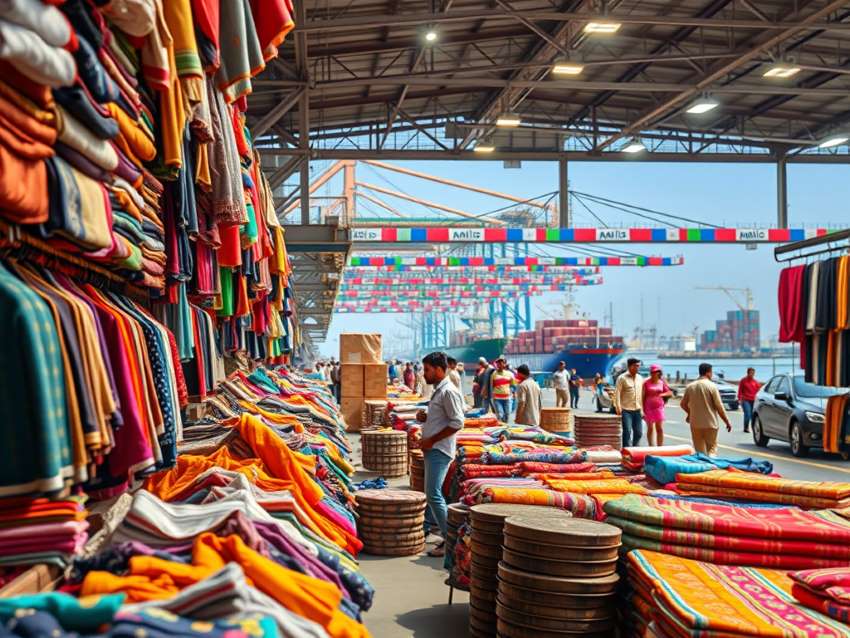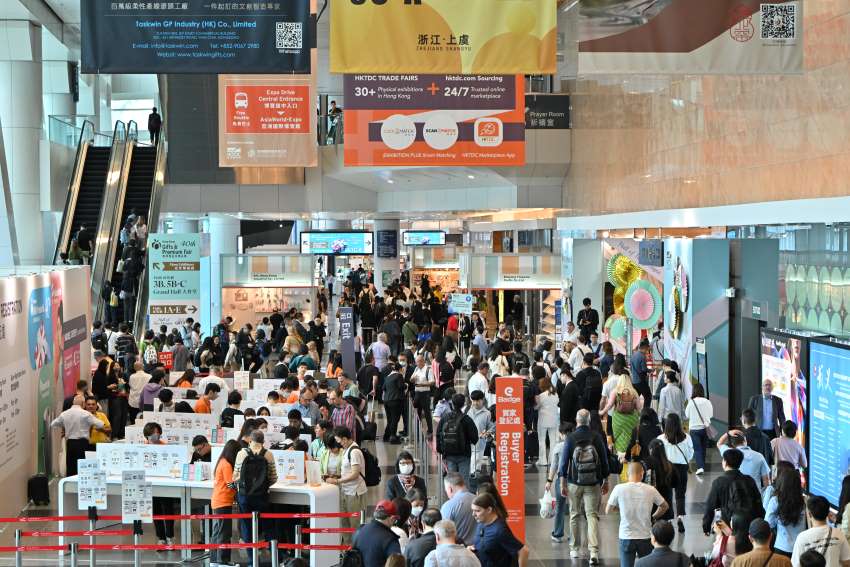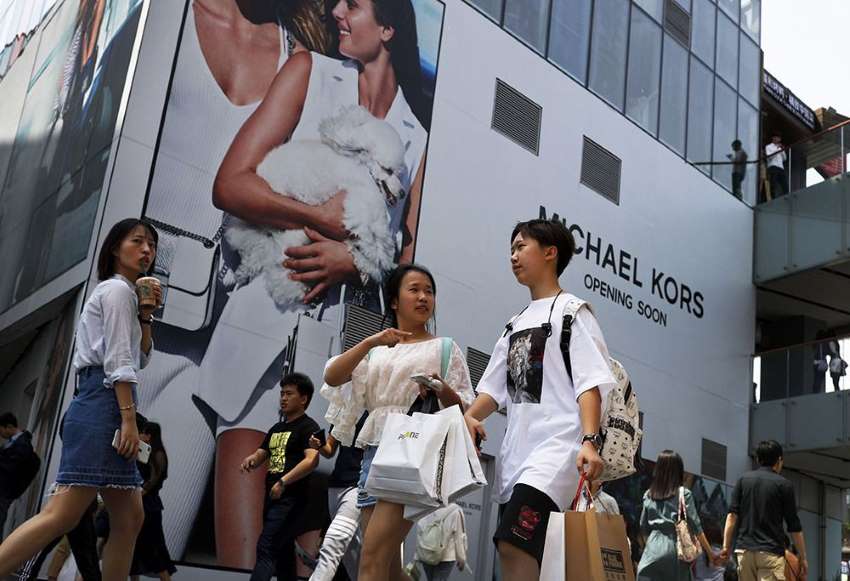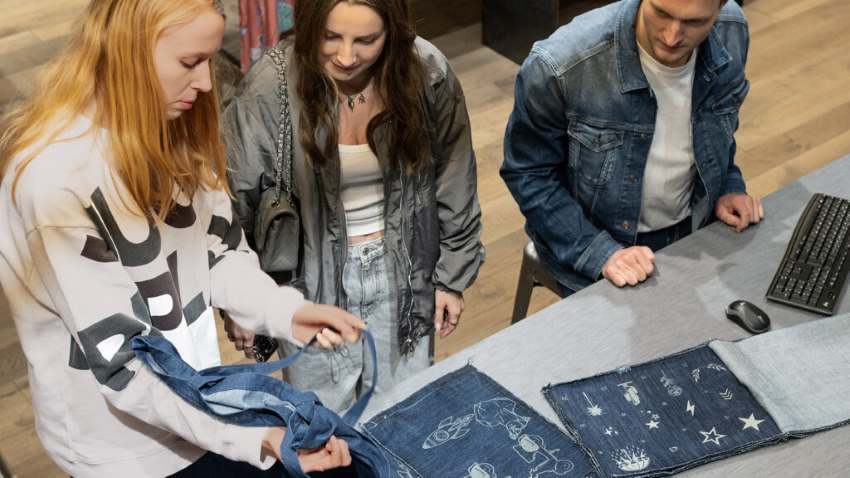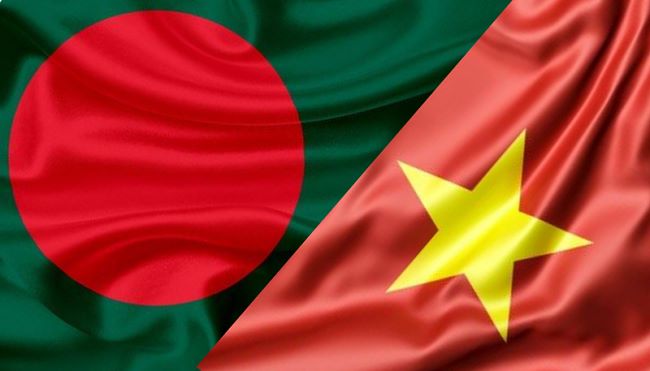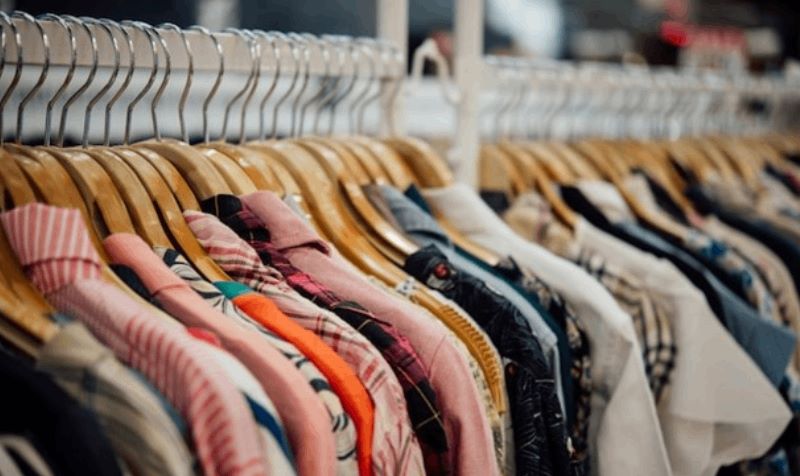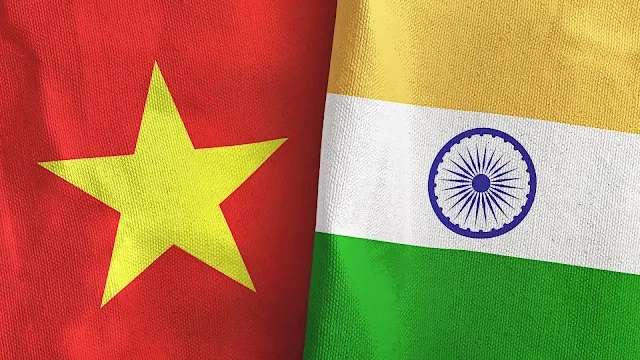FW
Indian fabric manufacturing firm Siyaram Silk Mills which forayed into readymade garments with the brand Oxemberg, witnessed an exceptional rise of 169.3 per cent in net sales at its garments division during last five fiscals, according to the company's annual reports.
The net sales reported for the fiscal 2010-11 at the readymade garments division of Siyaram Silk Mills was Rs 898.915 million, which increased to Rs 2,420.793 million in fiscal 2014-15. Net sales at the readymade garments division increased by 29.75 per cent year-on-year during 2011-12 to Rs 1,166.372 million and by 76.05 per cent during 2014-15 to touch Rs 2,420.793 million.
Oxemberg sold 1.923 million pieces of readymade garments in fiscal 2010-11, which increased to 3.883 million pieces by 2014-15. exceptional growth in readymade garment division is due to high profit margin in the segment which caters to mass markets. Usually, demand for such goods in not affected by changes in market conditions, according to analysts.
The percentage share of readymade garment’s division in total turnover of Siyaram's was recorded at 17.82 during the fiscal 2014-15
West Bengal is looking setting up a dozen textile parks. The state hopes to emerge as a major textile hub. These parks would be provided land, infrastructure, single window clearance, environment compliant infrastructure, power, apart from a host of subsides (capital, land, stamp duty, labor, power etc).
With time West Bengal hopes to be a leading destination for globally competitive value-added textiles like readymade garments, processed power loom and knitted fabrics, technical textiles and apparel products for both domestic and international markets. The textile parks envisage a space of 22.7 million sq. ft. The government has received ‘Expressions of Interest’ for more than 50 per cent of the space offered.
West Bengal has many manufacturers, but there is no major brand except a few. The retail sector needs to be standardised. To provide an enabling ecosystem to support and nurture start-ups in the state, West Bengal has also launched the state start-up policy.
Bangladesh is planning to shift a large distribution depot from Gujarat to West Bengal. Industry has been invited to come forward and assist the government in achieving the desired goal with suggestions and ideas. Every plan and program will be institutionalised so that the process is not disturbed in future.
Jute prices are rising in India. Jute is one of the cheapest items India produces. But the jute industry is facing huge losses and a fall in production due to floods in West Bengal last year. Raw jute prices have already touched an unprecedented high of Rs 54,000 a ton, twice the level of Rs 27,000 per ton in the year-ago period. It is feared that raw jute prices may reach the level of Rs 60,000 a ton.
With jute products having become costlier, their prices may shoot up further as the Center is contemplating a decrease in subsidy on the golden fiber. Due to the current steep hike in price of raw jute, the price of jute bags has also increased, resulting in a higher burden of subsidy to be given by the central government for purchase of jute bags.
Even after the drive by West Bengal for de-hoarding of raw jute stock, prices have further increased since November 2015. In order to check the possible price rise of jute bags and reduce the burden of subsidy on the Central government, prices of raw jute bags may be capped at the level of average price of November 2015.
Dadabhau Bhuse, Maharashtra minister of state for co-operation urged the local weavers and entrepreneurs to create own brand so as to earn identity and reputation in the competitive market. The minister was inaugurating a Buyer-Seller meet in Malegaon, Maharashtra recently.
Bhuse highlighted the potential of grey and ready-to-wear fabrics manufactured in Malegaon to attract the global market. There fabrics and saris being sold in local and international markets are manufactured by people of Malegaon. But, since powerloom weavers in Malegaon do not have a brand name, the sellers are using their own name and selling these quality products and earning handsome profits, Bhuse observed.
He pointed out the skill and potential of local weavers and powerloom owners will be a great hit. Taking a cue from ‘Make in India’, ‘Make in Maharashtra’ campaigns, Bhuse said that they need to start ‘Make in Malegoan’ campaign. The minister further said that he earnestly wishes that local grey cloth and ready-to-wear sarees and fabrics are exported directly from Malegaon with their own brand names.
The three-day Buyer-Seller Meet was jointly organized by the Regional Textile Commissioner Office Navi Mumbai and Powerloom Development and Export Promotion Council (PDEXCIL).
The port city of Chittagong in Bangladesh will have an apparel zone. It may be ready for operation by 2018. The move was largely prompted by the need for relocating a good number of apparel factories from various locations to Chittagong.
Setting up an apparel zone in the port city is a necessity in view of the need for restructuring the entire readymade garment sector with the required facilities given the emerging challenges as well as the 50 billion dollar export target by 2021. The facilities that the port city is potentially capable of offering far outshine those in any other part of the country.
Importing raw materials against back-to-back letters of credit and exporting finished materials - an unusual dual procedure on which the country’s export of apparels has thrived - can be better handled if the manufacturing plants are located close-by rather than having to operate from as far as in Dhaka and its adjoining areas where most of the apparel factories are located.
As the country’s main port city, it is Chittagong which should have prevailed as the prime location for export of apparels, especially in view of the intricacies involved in the back-to-back letter of credit system.
The age-old khadi sector is all set for a makeover. The spinning wheel will now run on solar power in its new avatar of solar charka. Solar charkas will lower strain on weavers and increase productivity. The newly-developed wheels have more spindles that can run on solar power. The objective is to increase wages of spinners since most khadi workers are women.
A spinner earns Rs 160 a day for eight hours of work on a hand-spun wheel while solar-powered charkas can spin material worth Rs 350 to Rs 380. Conventional wheels hold 3 to 8 spindles of khadi, which produce 25 hanks of yarn in eight hours. Solar-powered spinning wheels can hold 36 spindles to produce 100 hanks in the same time.
The original cost of a solar charka was Rs 70,000, which has been brought down to Rs 40,000. Developers are working at further towards reducing the cost. In remote and rural areas, where uninterrupted electricity is a distant dream, solar charkas will help boost the income of weavers. The quality of the yarn can also improve by the use of solar charka. It can help traditional spinning grow into an industry without involving human drudgery.
Texfair 2016 will be held in Tamil Nadu from May 20 to 23, 2016. This is an exhibition of textile machinery, spares and accessories. The objectives of the fair are to provide a platform for stakeholders to zero in on investments and expenses prudently, showcase their inventions and cost effective items and other products, enable technocrats and shop floor technicians to update their knowledge on the latest technology and create an awareness on cost cutting, and to encourage micro, small and medium entrepreneurs also to showcase their products and get exposure to the market.
The event will enable suppliers and users to plan their investments and renew their business. National seminars of interest to the textile industry will be conducted. Coimbatore, the venue of the fair, is considered the Manchester of South India and is the hub for textile business in India. Among the participants are manufacturers and suppliers of textile machinery and spares of ginning, spinning, weaving, processing, power looms, handlooms, knitting and garmenting.
Among the exhibits are textile testing equipments, items relating to effluent treatment, auxiliary equipments, electrical and electronic items and packaging materials, pneumatic equipment and accessories, lubricants and energy saving equipments.
Maharashtra has announced a capital subsidy for the upcoming self-financed textile projects in the state. The aim is to modernise and boost the state’s textile industry.
Spinning mills, cotton ginning, processing and printing units will get a 35 per cent capital subsidy, technical textiles and composite units will be given a 30 per cent capital subsidy, and powerloom and other textile related units will get a 25 per cent capital subsidy.
This is for the first time that the state has announced a capital subsidy for self-financed textile units. So far the subsidy was credit linked. Malegaon weavers, along with other textile sectors, are rejoiced with this decision. These weavers have been for long wanting capital subsidy to be delinked. Under this policy, entrepreneurs who don’t want to take loans and are self-sufficient can also avail of this subsidy.
Of the 2.5 million powerlooms working in India, Maharashtra has more than 50 per cent of them, comprising those in Bhiwandi, Malegaon, Ichalkaranji, Sholapur, Nagpur and other textile clusters. In spite of the government releasing a huge amount of funds for modernisation under the Technology Upgradation Fund Scheme, the country has so far been able to set up only around two lakh modern and shuttle-less looms.
The latest edition of the Wool Lab dedicates four out of six themes to a style that is suitable for both women’s wear and men’s wear, demonstrating that wool fabrics continue to become increasingly popular outside of traditional men’s tailoring. Two additional themes have been created, focusing on wool in sport and active wear. Wool Lab is a seasonal guide produced by Woolmark, presenting the best selection of commercially available wool fabrics and yarns.
The Generations theme is dedicated to fundamental family figures. Sons and daughters emulate their parents’ style. The luxury quality of wool textiles meets the design of traditional suits and jackets, dresses and knitwear. The Barber’s theme is where the old fashioned job is reinterpreted by young generations, influencing the male identity. The most classical fabric patterns are studied for lighter weights allowing a more fresh and contemporary look as the style of dress makes an important return.
Asian Flair presents an understated sensuality inspired by oriental feelings, where the everyday life of women enhances their femininity, wearing voluminous but lightweight skirts and transparent embellished dresses. The color palette evokes Asian customs and landscapes. In the Informal theme, the informal way of dressing looks as comfortable as refined. The mix and match of jackets and utility pieces brings a sense of formality to a casual style.
The New Makers theme is dedicated to innovative technologies able to combine traditional arts and experimental techniques.
www.woolmark.com/inspiration/the-wool-lab/
A joint forum of banks, led by State Bank of India, has decided to convert the loans extended to the integrated textile company Alok Industries into a 65 per cent stake by invoking the strategic debt restructuring optio. The company will issue fresh equity shares worth about Rs 2,558 crores by March as the banks convert their debt into equity, wielding the loan-recovery weapon the RBI has armed them with.
As of the September quarter, the company’s total standalone debt was Rs 12,642 crores. One of the largest exporters of home textiles, Alok Industries has been in trouble the past few years as it ventured into retailing and building brands in the domestic and international markets with the launch of H&A retail outlets to sell home textiles and readymade garments. However, with debt piling up and intense competition in the domestic market, it decided to exit the retail venture and focus on the export market.
In the September quarter, the company registered a standalone loss of Rs 242 crores against a net profit of Rs 45 crores in the same period last year. Net sales during the quarter fell 15 per cent. Under Reserve Bank of India rules, banks can convert a part of their debt for a majority stake in a defaulting company and find a suitor within 18 months.
www.alokind.com/

